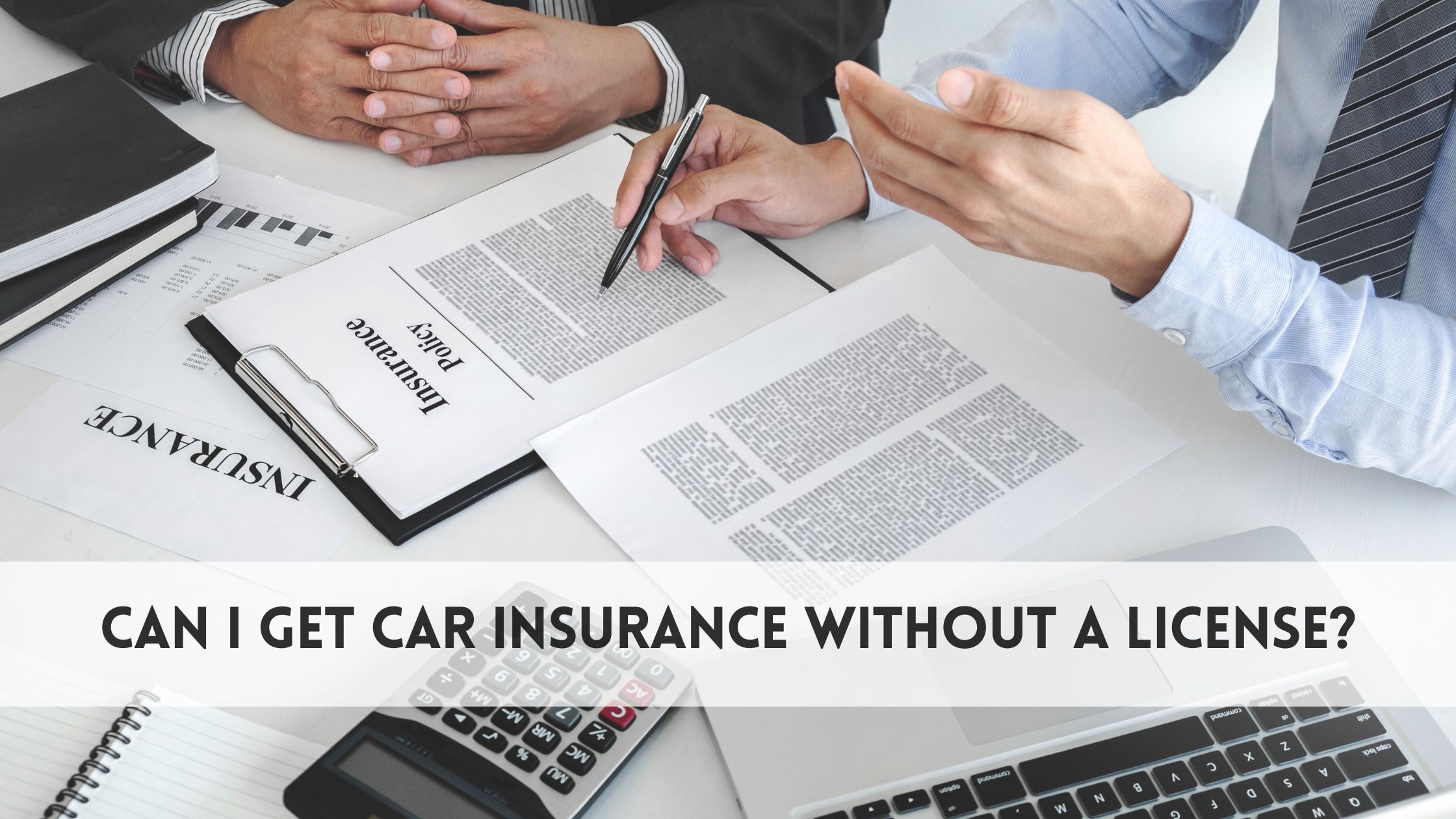The Ultimate Car Insurance Guide in Vermont 2024

Car insurance is a crucial aspect of owning a vehicle in Vermont, as it provides financial protection in the event of an accident or other unforeseen circumstances. Every state has its own laws and requirements for car insurance, and Vermont is no exception. It’s essential to understand the minimum requirements and different types of coverage available to ensure you have adequate protection while driving in the Green Mountain State.
In this guide to car insurance, we’ll walk you through everything you need to know about obtaining and managing car insurance in Vermont. From state-specific requirements to money-saving tips for car insurance, we’ve got you covered.
Vermont’s unique landscape and climate can present unique challenges for drivers, making it all the more important to have a reliable car insurance policy in place. Whether you’re looking to switch insurers, lower your premiums, or simply gain a better understanding of the car insurance guide in Vermont, this blog post will provide you with the knowledge and insights you need to make informed decisions about your coverage.
What Are the Minimum Car Insurance Requirements in Vermont?
Car insurance is a critical aspect for every vehicle owner, and Vermont is no exception. The state mandates certain minimum requirements for car insurance to ensure that all drivers are financially covered in the event of an accident. Understanding these requirements is essential for anyone navigating the roads of the Green Mountain State. This guide serves as a comprehensive car insurance guide for Vermont, detailing the fundamental coverage necessary for every driver.
First and foremost, Vermont requires all vehicle owners to have liability insurance. This is the cornerstone of a guide to car insurance in Vermont, as it covers damages for injuries and property damage to others if you are at fault in an accident.
These requirements include:
Liability coverage of 25/50/10, which means $25,000 for bodily injury per person, $50,000 for bodily injury per accident, and $10,000 for property damage. Additionally, uninsured/underinsured motorist coverage of 50/100 is also mandatory.
For those seeking tips for car insurance, it’s important to note that while these are the minimum requirements, it’s often advisable to opt for higher coverage limits. This extra coverage can provide greater financial security in the unfortunate event of a serious accident.
For consumers considering new car insurance in Vermont, it’s crucial to not only meet these minimum requirements but to also evaluate additional coverage options. Comprehensive and Collision coverage, though not mandated by law, offer extra layers of protection, particularly for newer vehicles. Comprehensive covers non-collision-related damage such as theft or natural disasters, while Collision helps with repairs after an accident.
When exploring consumers car insurance options, it’s important to compare different policies and providers. Factors like your vehicle’s make and model, your driving history, and even your geographic location within Vermont can influence your premium. Always seek a policy that balances affordability with ample protection.
What Are the Different Types of Car Insurance Coverage in Vermont?
Navigating the world of car insurance in Vermont can be a daunting task for many drivers. With a myriad of options available, it is essential to have a reliable car insurance guide that demystifies the different types of coverage. This guide serves as an essential guide to car insurance for Vermont residents, offering in-depth insights into various insurance policies and their specific benefits.
One of the key elements in this guide is consumer car insurance, which focuses on the needs and concerns of the average driver in Vermont. Understanding that each driver’s situation is unique, this section provides tailored advice and information. From the minimum legal requirements to optional extras, it’s designed to help consumers make informed decisions about their car insurance.
Additionally, our tips for car insurance segment is a treasure trove of practical advice. Whether you’re a first-time car owner or looking to switch your insurance provider, these tips will guide you through the process, highlighting important factors to consider such as coverage limits, deductibles, and premium costs.
Moreover, car insurance tips is an invaluable part of the guide, offering strategic insights into reducing premiums, understanding the importance of liability coverage, and the benefits of comprehensive and collision insurance. This section is particularly beneficial for Vermont drivers looking to optimize their coverage while managing costs effectively.
So let’s dive into the world of car insurance in Vermont and learn about the various types of coverage available to you.
1. Liability Coverage
Liability insurance is the most basic form of car insurance required in Vermont. It covers damages to other vehicles and injuries to other people when you are at fault in an accident. As a fundamental aspect of your consumers car insurance package, it’s essential to understand the limits and what it covers.
- Ensure compliance with the law by evaluating the minimum liability requirements in Vermont.
- Enhance your financial protection by considering purchasing higher liability limits.
- Review your policy for any additional coverage options that work well with liability coverage.
Pro-Tip: It is important to regularly reassess your liability coverage to match your changing financial circumstances and potential risks.
2. Collision Coverage
- Understand what Collision Coverage covers: This type of coverage pays for any damage to your vehicle that occurs as a result of a collision with another vehicle or object.
- Know the deductible: It is important to determine the amount you are willing to pay out of pocket in the event of a collision and select a deductible that fits your budget.
- Evaluate the value of your vehicle: Take into consideration the current value of your vehicle to determine if Collision Coverage is necessary based on its worth.
3. Comprehensive Coverage
When considering comprehensive coverage, it’s important to carefully consider the cost and potential benefits, as well as your circumstances. Seeking advice from an insurance company or insurance agent can help you make an informed decision.
Some car insurance tips to keep in mind:
- Understand what comprehensive coverage includes, such as protection against natural disasters, theft, vandalism, and collisions.
- Review your policy’s limits and deductibles to ensure that you have adequate protection.
- If you have a car loan or lease, consider adding gap insurance.
- Assess the need for comprehensive coverage based on your vehicle’s value and the risk factors in your area.
4. Uninsured/Underinsured Motorist Coverage
Uninsured/underinsured motorist coverage is a crucial form of protection in case you are involved in an accident with a driver who lacks sufficient or insurance. While this coverage is optional in Vermont, it is highly recommended to safeguard against potential financial losses.
In Vermont, uninsured motorist coverage can be a lifesaver as over 6% of drivers were uninsured in 2019, making it an essential form of protection.
5. Medical Payments Coverage
- Medical payment coverage, also referred to as MedPay, assists in covering medical expenses resulting from a car accident, regardless of fault.
- Promptly report the accident to your insurance provider and submit any necessary medical bills and documents.
- Be sure to fully understand the coverage limits and exclusions of your medical payments coverage.
How Much Car Insurance Do You Need in Vermont?
This car insurance guide aims to demystify the process and provide you with essential tips for car insurance.
In Vermont, it’s legally required for drivers to have car insurance. But what does that mean for you as a consumer? The minimum liability insurance required in Vermont includes $25,000 for bodily injury per person, $50,000 for bodily injury per accident, and $10,000 for property damage. However, sticking to just the minimum might not be the best strategy. Why? Because in many cases, the minimum coverage doesn’t provide adequate protection in the event of a serious accident. This is where our guide to car insurance becomes invaluable.
To determine how much car insurance you need, consider factors like your personal financial situation, the value of your vehicle, and your risk tolerance. If you have significant assets, for instance, you might want to increase your liability coverage to protect those assets in case of a lawsuit following an accident. This is a crucial tip for car insurance planning.
Apart from liability insurance, consider other types of coverage like collision, comprehensive, uninsured/underinsured motorist coverage, and medical payments coverage. Collision insurance covers damage to your car from an accident, regardless of who is at fault. Comprehensive insurance, on the other hand, covers non-collision-related incidents such as theft or natural disasters.
Consumers’ car insurance decisions should not be taken lightly. Vermont residents should consider consulting insurance guides or professionals to understand better what coverage suits their needs. Remember, the cheapest policy is not always the best. Look for a policy that offers a fair balance of comprehensive coverage and a reasonable deductible.
Vermont drivers need to be well-informed about their car insurance needs. Following these insurance guides and tips for car insurance can help you make a decision that provides both peace of mind and financial protection. Remember, adequate car insurance is not just a legal requirement but a crucial aspect of your financial security on the road.
General Car Insurance Recommendations
The process of choosing the right policy can be overwhelming, which is why car insurance recommendations are crucial. These car insurance recommendations guide drivers towards policies that best suit their individual needs and budget.
Firstly, assess the types of coverage available. Liability insurance covers damage you cause to others, while comprehensive insurance covers damage to your car from non-collision events. Collision insurance, on the other hand, covers damage to your car from accidents. Personal Injury Protection (PIP) and uninsured/underinsured motorist coverage are also vital for additional protection.
Secondly, consider the insurance company’s reputation and customer service. Research their claim settlement ratio and read customer reviews. Opt for a company known for hassle-free claim settlements and good customer support.
Lastly, evaluate your specific needs. If you drive frequently in high-risk areas or have a high-value car, consider higher coverage limits. If you have an older, low-value car, basic coverage might suffice. Tailoring your policy to your unique circumstances can provide the best balance of cost and protection.
Remember, the cheapest policy isn’t always the best. Choose one that offers comprehensive coverage at a reasonable price. Stay informed about policy updates and review your insurance needs annually to ensure continued optimal coverage.
What Factors Affect Your Car Insurance Rates in Vermont?
When it comes to understanding car insurance rates in Vermont, navigating the maze of factors can seem daunting. Our comprehensive car insurance guide is here to help. Several key elements influence your premiums, and being aware of them can empower you as a consumer.
Firstly, your driving record plays a pivotal role. A history of accidents or traffic violations can hike up your rates, as insurers view you as a higher risk. Conversely, a clean driving record can lead to lower premiums, highlighting the importance of safe driving.
Your vehicle type is another significant factor. High-performance or luxury cars typically incur higher insurance costs due to their value and repair costs. If budget-friendly insurance is a priority, consider this when choosing your vehicle.
Age and gender are also considered in determining rates. Younger drivers, especially males, often face higher premiums due to their perceived inexperience on the road. This aspect of car insurance tips the scales based on statistical risk assessments.
Location within Vermont can impact your rates too. Areas with higher crime or accident rates might see increased insurance costs. Understanding these geographical influences is a crucial part of your guide to car insurance.
Lastly, the amount of coverage you choose directly affects your premium. Opting for comprehensive coverage will cost more than basic liability insurance. It’s essential to balance your needs and budget when selecting your coverage.
In summary, a blend of personal, vehicular, and geographical factors interplay to determine your car insurance rates in Vermont. Armed with these insurance guides and car insurance tips, you can make informed decisions and potentially lower your insurance costs.
How to Get the Best Car Insurance Rates in Vermont?
Are you a resident of Vermont looking for the best car insurance rates? Look no further. In this comprehensive insurance guide, we will discuss the key factors to consider to get the most affordable and comprehensive car insurance in Vermont.
We will start by discussing the importance of shopping around for quotes, followed by the impact of your deductible on your premiums. Finally, we will explore the various discounts offered by insurance companies and how you can take advantage of them to lower your rates.
Shop Around for Quotes
The journey to finding the best rates begins with research. Don’t settle for the first quote you receive. Instead, shop around and compare quotes from multiple insurance providers to find the best rates.
Online insurance guides are a great resource to understand what different companies offer and their rate structures. When reviewing the quotes, be sure to consider factors like coverage limits and deductibles.
Don’t forget to check for any available discounts or special offers from the insurers.
Consider Discounts and Deductions
One of the most useful car insurance tips is to inquire about discounts. Many insurance companies in Vermont offer a range of discounts, including safe driver discounts, multi-policy discounts, and discounts for cars with advanced safety features. It’s also wise to consider increasing your deductible. A higher deductible generally leads to lower monthly premiums, but ensure it’s an amount you can afford if you need to make a claim.
Seek Professional Advice
Sometimes, the best car insurance recommendations come from speaking with an insurance agent. They can provide personalized advice based on your driving history, vehicle type, and budget. Professional advice can be invaluable in navigating the complexities of insurance policies.
Pro-Tip: Maintaining a clean driving record can qualify you for additional discounts, so drive safely and save!
What to Do in Case of a Car Accident in Vermont?
In the event of a car accident in Vermont, it is important to promptly assess any injuries and call 911 for assistance. Safely move the vehicles involved to the side of the road. Exchange necessary information with the other driver, including names, addresses, and insurance details. Document the scene of the accident and gather information from any witnesses.
Report the incident to the nearest law enforcement office. Additionally, it is important to notify your insurance company and seek legal advice if needed.
Conclusion:
Embracing the essence of effective insurance guides, this blog post has meticulously dissected the nuances of car insurance policies, providing invaluable insights for Vermont residents. The detailed exploration of various coverage options, from liability to comprehensive coverage, embodies the spirit of a true guide to car insurance.
Key to this guide are the tailored car insurance tips, designed to help consumers make informed decisions. These insights are particularly beneficial for those new to consumer car insurance, offering clarity amidst the often-confusing jargon and fine print. Tips for car insurance, such as how to compare quotes and understand policy specifics, empower readers to confidently choose the right protection for their vehicles.
Furthermore, this car insurance guide highlights the importance of understanding Vermont’s unique insurance requirements and how they impact drivers. From discussing the legal minimums to exploring additional coverage options, this guide ensures that residents are well-equipped to navigate the car insurance landscape in Vermont.
At Hull Maynard Hersey Insurance Agency, we specialize in providing top-tier car insurance solutions tailored to your needs in Rutland City, Vermont. Our dedicated team works tirelessly to ensure you receive the most comprehensive coverage at competitive rates. Trust us to safeguard your journey with insurance policies designed for maximum protection and peace of mind.
Frequently Asked Questions
What are the legal requirements for car insurance in Vermont?
Vermont requires all drivers to carry liability coverage as a bare minimum. Additional coverage, such as personal liability insurance or Collision and Comprehensive, is not required but can provide added protection for valuable assets.
What happens if I drive without car insurance in Vermont?
Driving without car insurance in Vermont is a serious offense and can result in a $100 fine, 2 points added to your license, and a required SR-22 form. In more severe cases, causing an accident or driving recklessly without insurance can result in a temporary license suspension
How to find the best car insurance?
To find the best car insurance, begin by assessing your specific coverage needs and budget. Compare quotes from multiple reputable insurers, considering factors like coverage options, deductibles, and customer reviews. Rely on Hull Maynard Hersey Insurance Agency’s expertise for guidance in navigating the choices and securing the ideal policy tailored to your requirements.
How to choose the best car insurance?
Choosing the best car insurance involves assessing your coverage needs, comparing quotes from multiple insurers, considering customer service ratings, and understanding policy details. Prioritize a balance between comprehensive coverage and affordable premiums, and look for discounts or bundles that suit your specific circumstances for optimal insurance protection.
What factors affect car insurance rates?
Car insurance rates are influenced by several key factors, including the driver’s age, driving history, location, vehicle type, coverage level, and credit score. Additionally, factors such as marital status, gender, and the frequency of claims in a specific area can also impact insurance premiums. Hull Maynard Hersey Insurance Agency can provide tailored solutions to meet specific coverage needs and budget constraints.
How does location affect car insurance rates?
Location affects car insurance rates due to factors like traffic volume, accident frequency, theft rates, and weather conditions. Urban areas often have higher rates due to increased risks of accidents and theft. Conversely, rural areas typically experience lower rates owing to less traffic and lower crime rates. Additionally, local repair costs and state regulations can influence rates.



